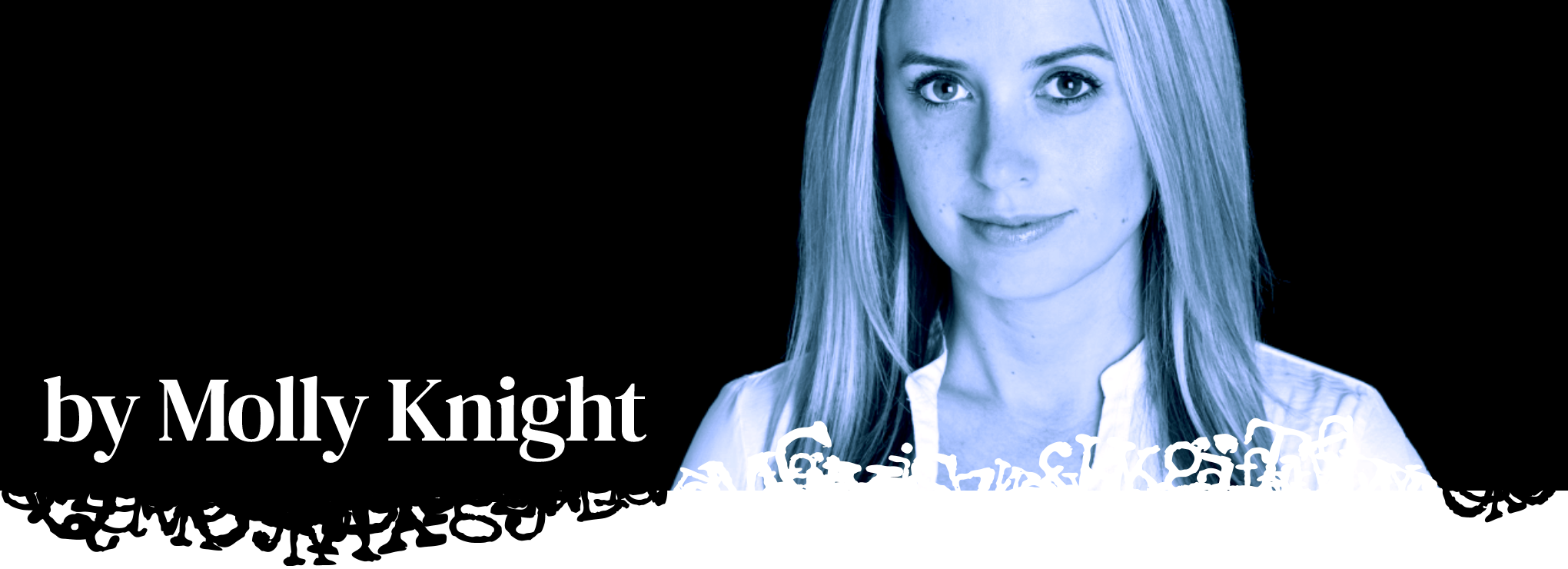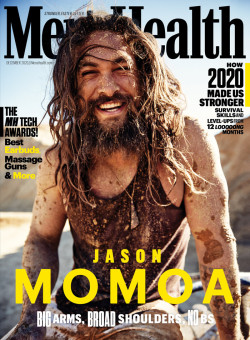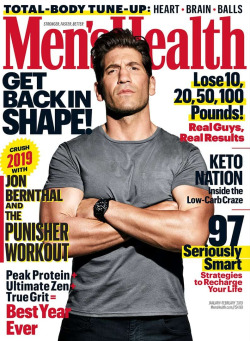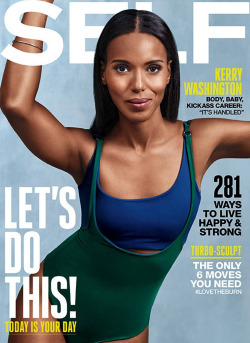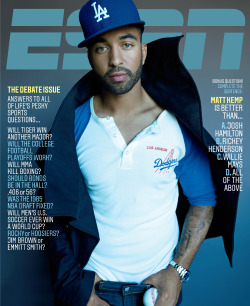
Jon Bernthal on What It Means to Man Up
THE SUN HAS ALMOST SET on a warm October evening, and I can’t find Jon Bernthal anywhere. I’m walking along a racetrack against an exploding lilac-and-orange sky in the middle of the desert two hours outside Los Angeles. The sound of revving engines is so loud that yelling his name is futile. A few hundred people buzz about, carrying cartons of cigarettes and department-store dinner jackets and porkpie hats and scripts and lights and everything else a summer-tentpole budget can buy to transform our present-day digital hellscape into sweet, simple 1966.
I’ve spent the past week holed up in an underground lair with Bernthal, sort of, watching and rewatching his devastating turn as Frank Castle, aka the Punisher—a combat-veteran action hero whose superpower is his quest for justice fueled by the anguish and rage he feels after his wife and children are slaughtered in front of him—so I like my chances of being able to spot him in this traveling circus. I’m confident I’ve memorized each tiny jut of wayward bone in his nose, which has been broken 14 times. When I don’t find Bernthal in his trailer, I walk toward the starting line and look for the biggest, most tatted-up loner. So I’m shocked when a reasonably sized dude with a side part and an A-list smile waves me down; sticks his hand out; says, “Hi, I’m Jon! So happy you made it!”; and begins introducing me to half the crew. Castle is a man of few words and even fewer friends who communicates with his eyes and his fists. The guy who plays him responds to every one of my questions with thoughtful, multiple-paragraph soliloquies and is bros with everyone on the set.
Bernthal is a day from wrapping the three-month shoot of his latest movie, an epic drama about Ford’s push to build a race car that could finally beat the mythic Italian automaker Ferrari at the Le Mans world championship in France. The odds are good that the film—directed by James Mangold (Logan) and also starring Matt Damon and Christian Bale—will boost Bernthal’s profile when it premieres this summer.
In the film, Bernthal plays Lee Iacocca, the American auto executive who brought sexy, fast cars like the Ford Mustang to baby boomers as they came of age. It’s a huge departure from the brass-knuckled characters the actor has typically portrayed, such as a veteran who gets beaten to death trying to prevent his girlfriend from being raped (Wind River) and a rodeo cowboy grappling with early-onset Parkinson’s disease (Sweet Virginia). As I shake his hand, I notice stage makeup caked on his right wrist to cover up a tattoo, which bears the name of his acting teacher Alma Becker. I ask him if this is the only adjustment he’s had to make to fill Iacocca’s shoes. He laughs. Then he says he wanted the part badly, but he jumped into filming just two days after wrapping season 2 of The Punisher (which will be released on Netflix in mid-January) and felt like, well, a superhero out of water.
“At the center of this movie is this man’s dream,” says Bernthal. “When [Iacocca] comes into an idea, it’s just like, How can we make this work? It’s so different from Frank Castle, who literally lives in darkness and is not interested in even getting through the day. He’s interested in the momentary quieting of the noise.” Bernthal says he felt intimidated and scared those first several days on the set. “One of my best friends, Sean Carrigan, came to set after my first week, and he saw how I was and he said, ‘Hey, man, don’t forget who the fuck you are. You’re Henry Bernthal’s father, you’re Billy Bernthal’s father, you’re Adeline Bernthal’s father. You are who you are, and you’re what you’ve been through. Do not let this fuck you up.’ ” He shakes his head at the memory. “I came back the next Monday a different man.”
“A different man” is a trope of most Bernthal profiles, and though he describes himself that way to me more than once, he insists he’s sick of his own personal street-fighting-kid-turned-leading-man narrative. Yes, he got into a lot of scraps as a teen in Washington, D. C., in the ’90s, and later, after he moved to L. A. “But I’m so bored with that story of my life,” Bernthal says. “I put that guy to bed a long time ago. I’m a father and I’m a husband and I’m an artist, and I take my work seriously.”
So, back to the work. The scenes Bernthal is filming today are mostly reaction shots in which he says nothing. Cars whiz by on the track, he stands against a fence watching them, and the cameras watch him. After the crew finishes with close-ups of his face, we head 100 or so yards to his trailer. His personal effects are his boxing gloves and a water bowl for his pit bull Bam Bam, and that’s it. His mini-fridge is stocked with LaCroix and nothing else. He’s hoping shooting will wrap in the next hour so that he can jam out of here and drive back to his home in the sleepy hippie town of Ojai to make it to his kid’s soccer game.
BERNTHAL'S CRAZY WORK schedule—The Punisher’s second season shot for six months in New York—means that he misses more games than he would like. (His wife, Erin, brings the kids to New York each summer when they’re on break.) The distance gnaws at him. He tells me he draws on the pain of being separated from his own family to play the grieving Frank Castle. “I know there’s a ticking clock on this career, and one day the phone is gonna stop ringing,” he says. “Above all, I have a responsibility to take care of my family, but it’s hard because it takes me away from the people I love. . . . If I’m going to be away from my kids, I want one day for them to look at it and say, ‘Well, Dad was gone, but he was giving everything he had.’ ”
He makes a fist with his right hand to emphasize that last point, and I notice a jagged scar just below his thumb. “That’s where I broke my hand on the first day of filming the first fight scene of the year for The Punisher 2,” he says. “I kept on fighting, and on day two I tore ligaments, then on day three I dislocated it and had to get emergency surgery.” He tells me he was knocked unconscious during filming, and rolls up his shirtsleeves to reveal several more scars up and down his arms. “Was it the smartest thing to keep fighting with a broken hand? Maybe not. Maybe I could have been out for a shorter time. But I look at filming a scene like that the same way I look at a boxing match. I’m not gonna be the one to say I’m gonna walk away.”
